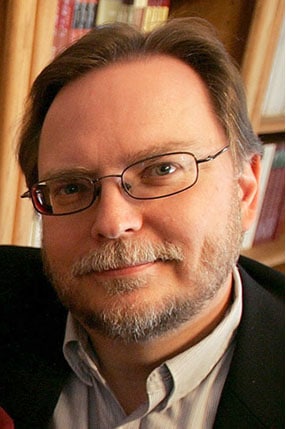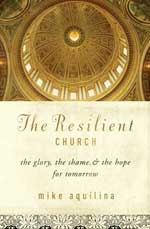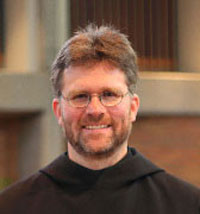The First Meditation – Introduction to the Devout Life: Chapter 9 by St. Francis de Sales audio mp3 edition – Discerning Hearts
Podcast: Play in new window | Download (Duration: 6:30 — 6.0MB) | Embed
Subscribe: Apple Podcasts | Spotify | Amazon Music | Android | Pandora | iHeartRadio | JioSaavn | Podchaser | Gaana | Podcast Index | Email | TuneIn | Deezer | Anghami | RSS | More

Introduction to the Devout Life
By
St. Francis de Sales
Chapter 9 – The First Mediation
read by Omar F. A. Guiterrez
For the pdf containing the complete text and footnotes click here
Other audio meditations from the Introduction of the Devout Life
Of Creation.
Preparation.
1. PLACE yourself in the Presence of God.
2. Ask Him to inspire your heart.Considerations.
1. Consider that but a few years since you were not born into the world, and your soul was as yet non-existent. Where wert thou then, O my soul? the world was already old, and yet of thee there was no sign.
2. God brought you out of this nothingness, in order to make you what you are, not because He had any need of you, but solely out of His Goodness.
3. Consider the being which God has given you; for it is the foremost being of this visible world, adapted to live eternally, and to be perfectly united to God’s Divine Majesty.Affections and Resolutions.
1. Humble yourself utterly before God, saying with the Psalmist, O Lord, I am nothing in respect of Thee—what am I, that Thou shouldst remember me? O my soul, thou wert yet lost in that abyss of nothingness, if God had not called thee forth, and what of thee in such a case?
2. Give God thanks. O Great and Good Creator, what do I not owe Thee, Who didst take me from out that nothingness, by Thy Mercy to make me what I am? How can I ever do enough worthily to praise Thy Holy Name, and render due thanks to Thy Goodness?
3. Confess your own shame. But alas, O my Creator, so far from uniting myself to Thee by a loving service, I have rebelled against Thee through my unruly affections, departing from Thee, and giving myself up to sin, and ignoring Thy Goodness, as though Thou hadst not created me.
The Second Meditation – Introduction to the Devout Life: Chapter 10 by St. Francis de Sales audio mp3 edition – Discerning Hearts
 Introduction to the Devout Life
Introduction to the Devout Life
By
St. Francis de Sales
read by Omar F. A. Guiterrez
Chapter 10 – The Second Meditation :
Podcast: Play in new window | Download (5.9MB) | Embed
Subscribe: Apple Podcasts | Spotify | Amazon Music | Android | Pandora | iHeartRadio | JioSaavn | Podchaser | Gaana | Podcast Index | Email | TuneIn | Deezer | Anghami | RSS | More
For the pdf containing the complete text and footnotes click here
Other audio meditations from the Introduction of the Devout Life
Of the End for which we were Created.
Preparation.
1. PLACE yourself before God.
2. Ask Him to inspire your heart.Considerations.
1. God did not bring you into the world because He had any need of you, useless as you are; but solely that He might show forth His Goodness in you, giving you His Grace and Glory. And to this end He gave you understanding that you might know Him, memory that you might think of Him, a will that you might love Him, imagination that you might realise His mercies, sight that you might behold the marvels of His works, speech that you might praise Him, and so on with all your other faculties.
2. Being created and placed in the world for this intent, all contrary actions should be shunned and rejected, as also you should avoid as idle and superfluous whatever does not promote it.
3. Consider how unhappy they are who do not think of all this,—who live as though they were created only to build and plant, to heap up riches and amuse themselves with trifles.Affections and Resolutions.
1. Humble yourself in that hitherto you have so little thought upon all this. Alas, my God, of what was I thinking when I did not think of Thee? what did I remember when I forgot Thee? what did I love when I loved Thee not? Alas, when I ought to have been feeding on the truth, I was but filling myself with vanity, and serving the world, which was made to serve me.
2. Abhor your past life. I renounce ye, O vain thoughts and useless cogitations, frivolous and hateful memories: I renounce all worthless friendships, all unprofitable efforts, and miserably ungrateful self-indulgence, all pitiful compliances.
3. Turn to God. Thou, my God and Saviour shalt henceforth be the sole object of my thoughts; no more will I give my mind to ideas which are displeasing to Thee. All the days of my life I will dwell upon the greatness of Thy Goodness, so lovingly poured out upon me. Thou shalt be henceforth the delight of my heart, the resting-place of all my affections. From this time forth I will forsake and abhor the vain pleasures and amusements, the empty pursuits which have absorbed my time;—the unprofitable ties which have bound my heart I will loosen henceforth, and to that end I will use such and such remedies.Conclusion.
1. Thank God, Who has made you for so gracious an end. Thou hast made me, O Lord, for Thyself, that I may eternally enjoy the immensity of Thy Glory; when shall I be worthy thereof, when shall I know how to bless Thee as I ought?
2. Offer. O Dearest Lord, I offer Thee all my affections and resolutions, with my whole heart and soul.
3. Pray. I entreat Thee, O God, that Thou wouldest accept my desires and longings, and give Thy Blessing to my soul, to enable me to fulfil them, through the Merits of Thy Dear Son’s Precious Blood shed upon the Cross for me.OUR FATHER, etc. Gather your little spiritual bouquet.
The Third Meditation – Introduction to the Devout Life: Chapter 11 by St. Francis de Sales audio mp3 edition – Discerning Hearts
 Introduction to the Devout Life
Introduction to the Devout Life
By
St. Francis de Sales
read by Omar F. A. Guiterrez
Chapter 11 – The Third Meditation :
Podcast: Play in new window | Download (Duration: 6:27 — 5.9MB) | Embed
Subscribe: Apple Podcasts | Spotify | Amazon Music | Android | Pandora | iHeartRadio | JioSaavn | Podchaser | Gaana | Podcast Index | Email | TuneIn | Deezer | Anghami | RSS | More
For the pdf containing the complete text and footnotes click here
Other audio meditations from the Introduction of the Devout Life
Of the Gifts of God
Preparation.
1. PLACE yourself in the Presence of God.
2. Ask Him to inspire your heart.Considerations.
1. Consider the material gifts God has given you—your body, and the means for its preservation; your health, and all that maintains it; your friends and many helps. Consider too how many persons more deserving than you are without these gifts; some suffering in health or limb, others exposed to injury, contempt and trouble, or sunk in poverty, while God has willed you to be better off.
2. Consider the mental gifts He has given you. Why are you not stupid, idiotic, insane like many you wot of? Again, God has favoured you with a decent and suitable education, while many have grown up in utter ignorance.
3. Further, consider His spiritual gifts. You are a child of His Church, God has taught you to know Himself from your youth. How often has He given you His Sacraments? what inspirations and interior light, what reproofs, He has given to lead you aright; how often He has forgiven you, how often delivered you from occasions of falling; what opportunities He has granted for your soul’s progress! Dwell somewhat on the detail, see how Loving and Gracious God has been to you.Affections and Resolutions.
1. Marvel at God’s Goodness. How good He has been to me, how abundant in mercy and plenteous in loving-kindness! O my soul, be thou ever telling of the great things the Lord has done for thee!
2. Marvel at your own ingratitude. What am I, Lord, that Thou rememberest me? How unworthy am I! I have trodden Thy Mercies under root, I have abused Thy Grace, turning it against Thy very Self; I have set the depth of my ingratitude against the deep of Thy Grace and Favour.
3. Kindle your gratitude. O my soul, be no more so faithless and disloyal to thy mighty Benefactor! How should not my whole soul serve the Lord, Who has done such great things in me and for me?
4. Go on, my daughter, to refrain from this or that material indulgence; let your body be wholly the servant of God, Who has done so much for it: set your soul to seek Him by this or that devout practice suitable thereto. Make diligent use of the means provided by the Church to help you to love God and save your soul. Resolve to be constant in prayer and seeking the Sacraments, in hearing God’s Word, and in obeying His inspirations and counsels.Conclusion.
1. Thank God for the clearer knowledge He has given you of His benefits and your own duty.
2. Offer your heart and all its resolutions to Him.
3. Ask Him to strengthen you to fulfil them faithfully by the Merits of the Death of His Son.OUR FATHER, etc.
Gather the little spiritual bouquet.
The Fourth Mediation – Introduction to the Devout Life: Chapter 12 by St. Francis de Sales audio mp3 edition
Introduction to the Devout Life
By
St. Francis de Sales
read by Omar F. A. Guiterrez
Chapter 12 – The Fourth Meditation :
Podcast: Play in new window | Download (Duration: 6:27 — 5.9MB) | Embed
Subscribe: Apple Podcasts | Spotify | Amazon Music | Android | Pandora | iHeartRadio | JioSaavn | Podchaser | Gaana | Podcast Index | Email | TuneIn | Deezer | Anghami | RSS | More
For the pdf containing the complete text and footnotes click here
Other audio meditations from the Introduction of the Devout Life
On Sin
Preparation.
1. PLACE yourself in the Presence of God.
2. Ask Him to inspire your heart.Considerations.
1. Consider how long it is since you first began to commit sin, and how since that first beginning sin has multiplied in your heart; how every day has added to the number of your sins against God, against yourself and against your neighbour, by deed, word, thought and desire.
2. Consider your evil tendencies, and how far you have followed them. These two points will show you that your sins are more in number than the hairs of your head, or the sand on the seashore.
3. Apart from sin, consider your ingratitude towards God, which is in itself a sin enfolding all the others, and adding to their enormity: consider the gifts which God has given you, and which you have turned against the Giver; especially the inspirations you have neglected, and the promptings to good which you have frustrated. Review the many Sacraments you have received, and see where are their fruits. Where are the precious jewels wherewith your Heavenly Bridegroom decked you? With what preparation have you received them? Reflect upon the ingratitude with which, while God sought to save you, you have fled from Him and rushed upon destruction.
The Fifth Meditation – Introduction to the Devout Life: Chapter 13 by St. Francis de Sales audio mp3 edition – Discerning Hearts
 Introduction to the Devout Life
Introduction to the Devout Life
By
St. Francis de Sales
read by Omar F. A. Guiterrez
Chapter 13 – The Fifth Mediation :
Download (right click & choose “Save Link As”)For the pdf containing the complete text and footnotes click here
Other audio meditations from the Introduction of the Devout Life
Of Death.Preparation.
1. PLACE yourself in the Presence of God.
2. Ask His Grace.
3. Suppose yourself to be on you death bed, in the last extremity, without the smallest hope of recovery.Considerations.
1. Consider the uncertainty as to the day of your death. One day your soul will quit this body—will it be in summer or winter? in town or country? by day or by night? will it be suddenly or with warning? will it be owing to sickness or an accident? will you have time to make your last confession or not? will your confessor or spiritual father be at hand or will he not? Alas, of all these things we know absolutely nothing: all that we do know is that die we shall, and for the most part sooner than we expect.
2. Consider that then the world is at end as far as you are concerned, there will be no more of it for you, it will be altogether overthrown for you, since all pleasures, vanities, worldly joys, empty delights will be as a mere fantastic vision to you. Woe is me, for what mere trifles and unrealities I have ventured to offend my God? Then you will see that what we preferred to Him was nought. But, on the other hand, all devotion and good works will then seem so precious and so sweet:—Why did I not tread that pleasant path? Then what you thought to be little sins will look like huge mountains, and your devotion will seem but a very little thing.
3. Consider the universal farewell which your soul will take of this world. It will say farewell to riches, pleasures, and idle companions; to amusements and pastimes, to friends and neighbours, to husband, wife and child, in short to all creation. And lastly it will say farewell to its own body, which it will leave pale and cold, to become repulsive in decay.
4. Consider how the survivors will hasten to put that body away, and hide it beneath the earth—and then the world will scarce give you another thought, or remember you, any more than you have done to those already gone. “God rest his soul!” men will say, and that is all. O death, how pitiless, how hard thou art!
5. Consider that when it quits the body the soul must go at once to the right hand or the left. To which will your soul go? what side will it take? none other, be sure, than that to which it had voluntarily drawn while yet in this world.Affections and Resolutions.
1. Pray to God, and throw yourself into His Arms. O Lord, be Thou my stay in that day of anguish! May that hour be blessed and favourable to me, if all the rest of my life be full of sadness and trial.
2. Despise the world. Forasmuch as I know not the hour in which I must quit the world, I will not grow fond of it. O dear friends, beloved ones of my heart, be content that I cleave to you only with a holy friendship which may last for ever; why should I cling to you with a tie which must needs be broken? I will prepare for the hour of death and take every precaution for its peaceful arrival; I will thoroughly examine into the state of my conscience, and put in order whatever is wanting.Conclusion.
Thank God for inspiring you with these resolutions: offer them to His Majesty: intreat Him anew to grant you a happy death by the Merits of His Dear Son’s Death. Ask the prayers of the Blessed Virgin and the Saints.
OUR FATHER, etc.
Gather a bouquet of myrrh.
The Sixth Meditation – Introduction to the Devout Life: Chapter 14 by St. Francis de Sales audio mp3 edition – Discerning Hearts
 Introduction to the Devout Life
Introduction to the Devout Life
By
St. Francis de Sales
read by Omar F. A. Guiterrez
Chapter 14 – The Sixth Mediation :
Podcast: Play in new window | Download (12.5MB) | Embed
Subscribe: Apple Podcasts | Spotify | Amazon Music | Android | Pandora | iHeartRadio | JioSaavn | Podchaser | Gaana | Podcast Index | Email | TuneIn | Deezer | Anghami | RSS | More
Download (right click & choose “Save Link As”)
For the pdf containing the complete text and footnotes click here
Other audio meditations from the Introduction of the Devout Life
On Judgment.
Preparation.
1. PLACE yourself in the Presence of God.
2. Intreat Him to inspire you.Considerations.
1. When the time comes which God has appointed for the end of this world, and after many terrible signs and warnings, which will overwhelm men with fear,—the whole earth will be destroyed, and nothing then left.
2. Afterwards, all men, save those already risen, shall rise from the dead, and at the voice of the Archangel appear in the valley of Jehoshaphat. But alas, with what divers aspects! for some will be glorious and shining, others horrible and ghastly.
3. Consider the majesty with which the Sovereign Judge will appear surrounded by all His Saints and Angels; His Cross, the Sign of Grace to the good and of terror to the evil, shining brighter than the sun.
4. This Sovereign Judge will with His awful word, instantly fulfilled, separate the evil and the good, setting the one on His Right Hand, the other on His Left—an eternal separation, for they will never meet again.
5. This separation made, the books of conscience will be opened, and all men will behold the malice of the wicked, and how they have contemned God; as also the penitence of the good, and the results of the grace they received. Nothing will be hid. O my God, what confusion to the one, what rejoicing to the other! Consider the final sentence of the wicked. “Depart from Me, ye cursed, into everlasting fire, prepared for the devil and his angels.” Dwell upon these awful words. “Go,” He says—for ever discarding these wretched sinners, banishing them for ever from His Presence. He calls them “cursed:” O my soul, what a curse: a curse involving all other maledictions, all possible evil, an irrevocable curse, including all time and eternity; condemning them to everlasting fire. Think what that eternity of suffering implies.
6. Then consider the sentence of the good. “Come,” the Judge says—O blessed loving word with which God draws us to Himself and receives us in His Bosom. “Blessed of My Father”—O blessing above all blessings! “inherit the Kingdom prepared for you from the beginning of the world.” O my God, and that Kingdom will know no end!Affections and Resolutions.
1. Tremble, my soul, at the thought. O God, who will be my stay in that hour when the pillars of the earth are shaken?
2. Abhor your sins, which alone can cause you to be lost when that fearful day comes. Surely I will judge myself now, that I be not judged;—I will examine my conscience, accuse, condemn, punish myself, that the Judge may not condemn me then. I will confess my faults, and follow the counsels given me.
Conclusion.
Thank God for having given you means of safety in that terrible Day, and time for repentance.
Offer Him your heart, and ask for grace to use it well.OUR FATHER, etc.
Gather a bouquet of myrrh.







 From the writings of St. Peter Julian Eymard:
From the writings of St. Peter Julian Eymard: Episode 1 – The Holy Rule of St. Benedict: A Spiritual Path for Today’s World with Fr. Mauritius Wilde O.S.B., PhD. Materialism vs Gratitude is the subject addressed in our first episode. How to deal with things. “Do you really need it?” This is the question we are called to ask ourselves.
Episode 1 – The Holy Rule of St. Benedict: A Spiritual Path for Today’s World with Fr. Mauritius Wilde O.S.B., PhD. Materialism vs Gratitude is the subject addressed in our first episode. How to deal with things. “Do you really need it?” This is the question we are called to ask ourselves.
 From the Holy Rule of St. Benedict:
From the Holy Rule of St. Benedict:
